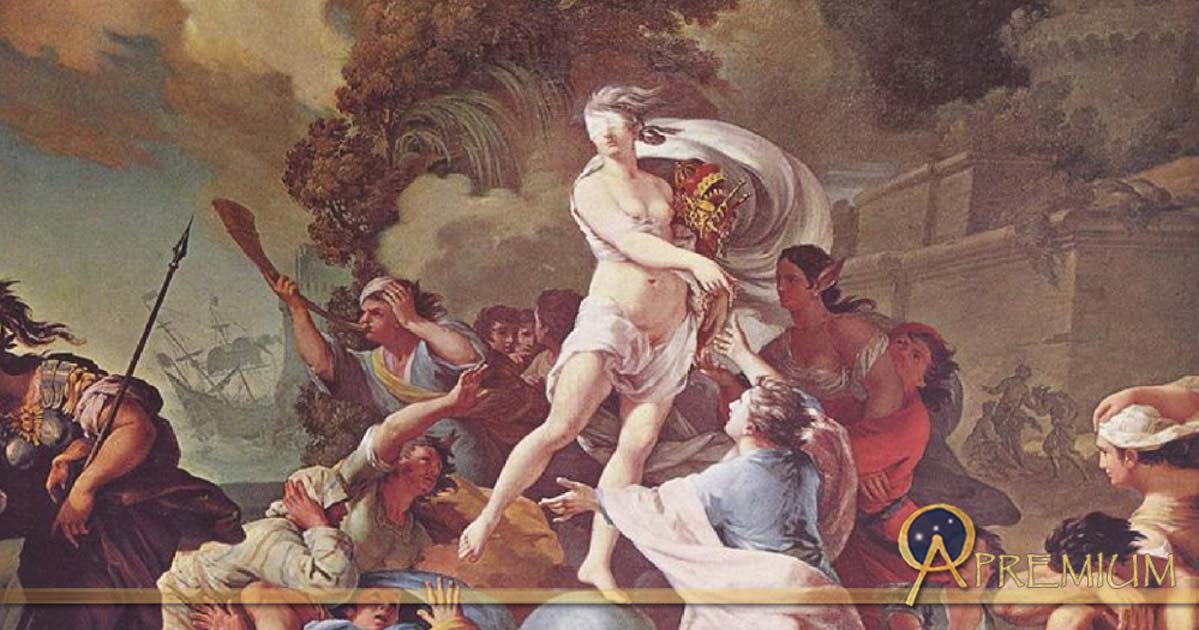Pure Luck: The Role of Chance in History
Luck is a way of understanding or judging how chance events affect our lives. Chance may be a mixed bag of marshmallows and razor blades, a flowing river of good and bad experiences; positive, negative, or improbable events. Throughout history, Chance, Fate, Destiny or just pure Luck have had such an impact on mankind’s lives, leading men to conjure up gods and goddesses to implore; invest magical powers into amulets, talismans and numbers; follow superstitious habits, and chanting spells and incantations; all in an attempt to redirect the natural flow of life in their favor.

Japanese superstitions regarding cats. Ume no Haru Gojūsantsugi" (梅初春五十三駅) by Utagawa Kuniyoshi. A shapeshifting cat. A kabuki that was performed in 1835 (Public Domain)
Fate, Luck or Just Mother Nature Intervening?
In the 13th century the Mongol Empire expanded across what is today approximately 50 modern countries, reaching from the Sea of Japan to Eastern Europe. In 1273 AD, seeking to expand his father’s Empire, Kublai Khan sent a missive to the king of Japan demanding he took to his knee and became a vassal of Mongolia. Instead, the Shogunate prepared Japan for a Mongolian sea invasion, which occurred in 1274 AD, when more than 20,000 Mongolian soldiers boarded 500 ships and ravaged the islands of Iki and Tsushima, before reaching Hakata Bay in Japan. The odds were stacked against the Japanese. Not only had they not fought on home soil for 50 years, but they trained in single combat, even when using massive armies, while the Mongols used unfamiliar tactics and weapons including early explosive devices like hand grenades.
Just as the Mongols were beaching, a storm stretching from horizon to horizon broke and tore the Mongolian fleet apart. Vessels that tried to flee were wrecked by the sea leaving only a handful of ships afloat and those that braved the storm were completely destroyed, leaving no survivors. This stroke of luck is where the term ‘kamikaze, or divine wind’ originated. Seven years later, 100,000 Mongols attempted a second invasion in 1281 and an unexpected, out of season typhoon sank the entire fleet.

Ink and water on paper illustration of the Mongol fleet being destroyed in a typhoon, by Kikuchi Yōsai, (1847) ( Public License)
This parable is so fitting because it highlights the dual nature of luck. For the Japanese, the two typhoons would have been regarded as god sent golden gifts of good luck.
Like this Preview and want to read on? You can! JOIN US THERE ( with easy, instant access ) and see what you’re missing!! All Premium articles are available in full, with immediate access.
For the price of a cup of coffee, you get this and all the other great benefits at Ancient Origins Premium. And - each time you support AO Premium, you support independent thought and writing.
Ashley Cowie is a Scottish historian, author and documentary filmmaker presenting original perspectives on historical problems, in accessible and exciting ways. His books, articles and television shows explore lost cultures and kingdoms, ancient crafts and artifacts, symbols and architecture, myths and legends telling thought-provoking stories which together offer insights into our shared social history. www.ashleycowie.com.
Top Image: “Goddess of Luck” Blind Fortuna by Tadeusz Kuntze (1754) (Public Domain)
By Ashley Cowie



















